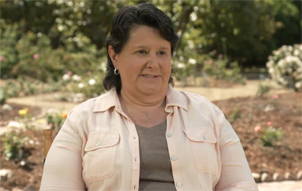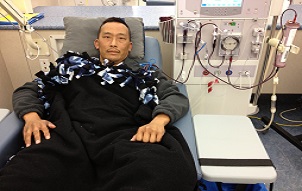Across the United States, millions suffer from kidney disease.
The most seriously affected suffer from “end-stage renal disease,” meaning their kidneys have effectively stopped working. The two most common reasons for kidney failure are diabetes and uncontrolled high blood pressure.
When someone’s kidneys fail, they have to do one of two things to stay alive. Hundreds of thousands undergo dialysis, a process that removes toxins and excess fluids from a patient’s blood stream through the use of medical devices.
There are three main types of dialysis: hemodialysis, which is performed at a dialysis clinic three times a week for three hours at a time, home hemodialysis which is performed in one’s own home and peritoneal dialysis, which is done on an ongoing basis. All are artificial means of cleansing the blood and perform only 10 to 15 percent of the work of fully functioning kidneys. As such, dialysis patients must follow a strict diet, restrict fluid intake, and often take medicine to manage blood pressure, red blood cell count and levels of minerals such as phosphorous and calcium in the blood.
Dialysis is hard on the body and limits one’s lifestyle. An alternative many patients choose to be evaluated for is a kidney transplant, which allows them to restore their life.




